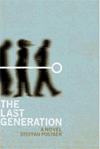Knowing we’re “crazy” means we’re less crazy than most.
August 23, 2016
Here’s to the Crazy Ones…
I admit it. I’m crazy. And for the most part I’m okay with that – not that I have a choice. Ever since I can remember I’ve been aware of my, shall we say, unique perspective on the human condition – or my condition anyway. I wasn’t like the other kids. And I’m not like the other men. And while that can prove irksome at cocktail parties, or at times to my wife, it is simply reality.
Fortunately, I was able to forge a very successful career in advertising, where tempered crazy mixed with hard work is called creativity. Finding compelling ways to persuade people into believing in a product, brand or service requires more than a sound strategy; it demands a unique intuition. Crazy good ideas are hatched from crazy good minds. On good days I was crazy.
Like a lot of crazies, I ran into trouble “augmenting” that reality with drugs and alcohol but those days are thankfully over. I accept the way my mind works, even relish it, and am “aware” in ways no artificial stimulation can simulate.
Going deeper, I’ve come to the conclusion that for a great many of “us” being crazy is merely being more wholly aware than most so-called “normal” people. I am aware of my demons and defects and, for the most part, have learned how to live with them and even play with them. They can be muses. Pandora’s Box can be opened and shut. Yes, depression and anxiety are a part of it. And this is not always a small price to pay (see the preceding paragraph). So be it.
Looking at the world, we see chaos. In religion. In politics. In every other Instagram feed. Millions upon millions of people acting crazy but not identifying as crazy. Speaking and voting and even killing and not aware of it as crazy. Are the multitudes normal or just in hopeless denial?
We crazy ones know the difference. That doesn’t make us “better than” or “less than” but it makes us saner.
(Author’s note: The above anthem is the never-aired version with voice over by Steve Jobs. In retrospect, I prefer it to the read given by Richard Dreyfuss.)




 The Happy Soul Industry
The Happy Soul Industry The Last Generation
The Last Generation